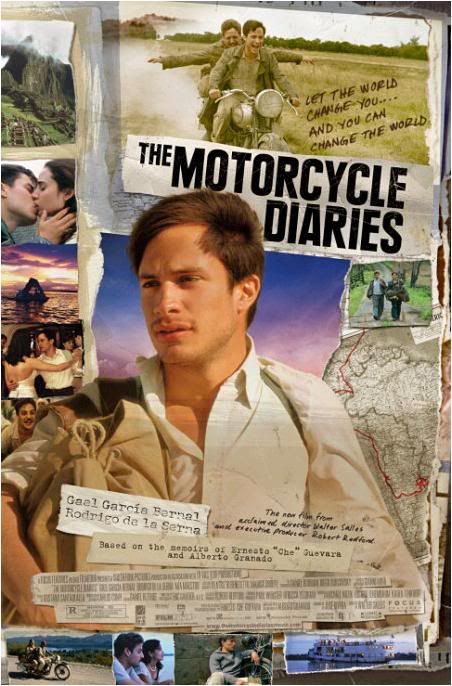 The motorcycle dies on them, but this film shows how an epic road trip with his buddy helps shape the revolutionary ideals of a young Che Guevara.
The motorcycle dies on them, but this film shows how an epic road trip with his buddy helps shape the revolutionary ideals of a young Che Guevara.THE grand achievement of The Motorcycle Diaries is in how humble and casual it appears on first encounter.
Director Walter Salles' recreation of a 1952 road trip taken by Argentinian youths Ernesto Guevara and his buddy Alberto Granado is gentle and warm.
But it also builds up an arresting soulfulness. Most impressive of all, it is political without being preachy.
Guevara, 23 years old at the time of the journey, would later emerge as Che, the famous revolutionary icon whose face now appears on a million T-shirts.
He helped Fidel Castro plan the Cuban revolution, leading rebels into Havana in 1959. He was captured and killed in a CIA-backed operation by the Bolivian army on Oct 9, 1967.
But at the beginning of this film, Guevara, played with tender regard by Gael Garcia Bernal, is still a tremulously romantic medical student. Fuser, as he is nicknamed, is a dreamy asthmatic whose ideals, as most young people's, are shaped by hazy book-bound concepts.
His companion Granado (Rodrigo de la Serna) is the older but not much wiser 29-year-old biochemist, hedonist and hearty bluffer.
There is a laudable purpose to the trip - the two are headed to Peru to volunteer at a leper colony.
But the journey ends up taking eight months on a stuttering motorbike, which dies before the duo complete their perambulations through Latin America, forcing them to finish their trek on foot.
Diaries looks deceptively like an amiable buddy movie, full of comic misadventures on the road. The duo squabble over money, pick up women with the voracious appetites of healthy young men and bond like frat brothers.
They are full of verve, blood and life, not merely a famous image on a T-shirt. They are also engagingly flawed young men who are not above petty spats and human fears.
But their encounters with uprooted peasants, impoverished Indians and simple workers begin to change them.
Salles captures, with astonishing immediacy and minimum sentimentality, how Fuser's initial idealism ignites a fiery political conviction that would fuel Guevara's later exploits in Cuba, the Congo and Bolivia.
Bernal's thoughtful Fuser reminds one of Shakespeare's Henry IV, a prince-in-waiting whose intellect and sensibility is lying dormant in anticipation of duties and accomplishments to come.
De la Serna imbues Granado with such Falstaffian vigour that he never becomes a mere sidekick to Fuser. Instead, he is equally companion and foil, champion and provocateur.
Salles' habit of placing the camera just behind or beside the duo and his documentary-style detachment gives the viewer a sense of tagging along as a privileged observer, watching as these two men blossom into awareness.
The trip might have taken place 50 years ago, but Salles' achievement is in imbuing it with a sense of the freshness the duo must have felt in exploring their continent.
The land itself is a third character in the film, brought to vivid life by cinematographer Eric Gautier's loving eye for the varied landscapes of Latin America, from burning desert plains to verdant vistas and snow-capped mountains.
True to Guevara's spirited exploration of identity both personal and political in his memoir, this film feels like a truly intimate peek into his heart. And that makes this a trip worth taking.
Copyright- Straits Times





